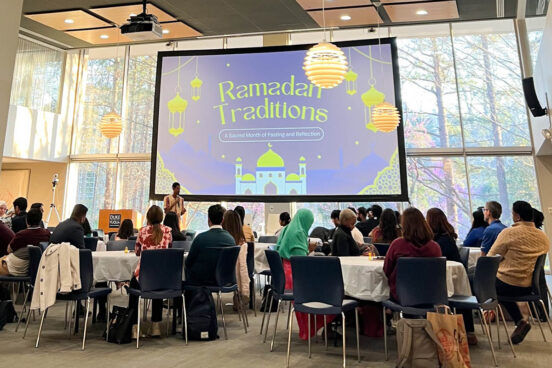Duke Daytime MBA Student Blog

Lessons From the Recruiting Trail
Exactly one year ago today, I attended my very first MBA recruiting event. It was the beginning of a four month onslaught of information overload, cold calls, and fried food. The odyssey that ensued was perhaps the most unexpected aspect of business school; I had no idea that the ivory tower included quite so many informational interviews. Getting an internship, for many, became a singular focus. And for almost everyone, the receipt of an offer was a massive relief; it ensured a return to normalcy, and provided some expectation that the second year of business school would be less hectic.
But a funny thing happened. When the second years returned to Durham from their internships around the country, the sentiment had changed. Perhaps it was a turn for the worse in the macroeconomic environment, or maybe we just started with unrealistic assumptions about the bliss we’d find in our summer jobs. When we were greeted with a figure of only 14% of second years returning to their summer employers on a full-time basis, we thought that even this may have been generous.
So, we’re now all getting at it again. This year, for full-time opportunities, there was only about a week reprieve between the beginning of classes and the recruiting deluge. As much as I enjoyed my summer experience, I felt it prudent to outline my own approach to recruiting. Last year was more of a scattershot approach, and I’m relatively certain I wasn’t alone in this regard. I came to feel that last year’s career search misadventures were probably made worse by a lack of focus; perhaps it’s a blessing in disguise that we get to do this twice, to make up for misguided efforts.
The interesting thing for me is that the conversations are a little bit different this time. There was a palpable tension in the air when we engaged recruiters last year; one could tell that we were all walking on egg shells, trying to convey some semblance of competence while avoiding an ill-informed comment. Especially for those folks switching careers, there was marked deference to these recruiters, who were universally seen as gatekeepers of a sort. Now it seems we’re collectively demonstrating somewhat more confidence; we’re no longer fearful of making the type of rookie mistakes that could potentially derail our careers, in part, because we’ve now been on the other side of the table and realize that there are few things, non-offensive things, you can say in a networking session that anyone will really remember.
So, in sum, I’ve come to realize a few things about the career search, based on this vast disparity between first and second year. First, the job search is inherently stressful; however, it’s not nearly as stressful as we seem to believe it should be. Our jobs are important, but as we’re so frequently reminded by the Career Management Center (CMC), we’re each going to have many more of them in our lives, so the job isn’t a destiny. Second, there’s no reason the job search can’t be enjoyable. These conversations don’t have to be painful or awkward; it is actually possible to just talk business, or about whatever else we have in common with recruiters, because at the end of the day, they wouldn’t be at Fuqua if they were so willing to scrutinize our every word. Finally, whatever happens, we have enough resources to get jobs we like. There’s an entire department at our school entrusted with making sure that we’re satisfied with the opportunities available to us, and they do a good job of it. And especially in the second year, we have the ability to leverage the experiences of our classmates.



